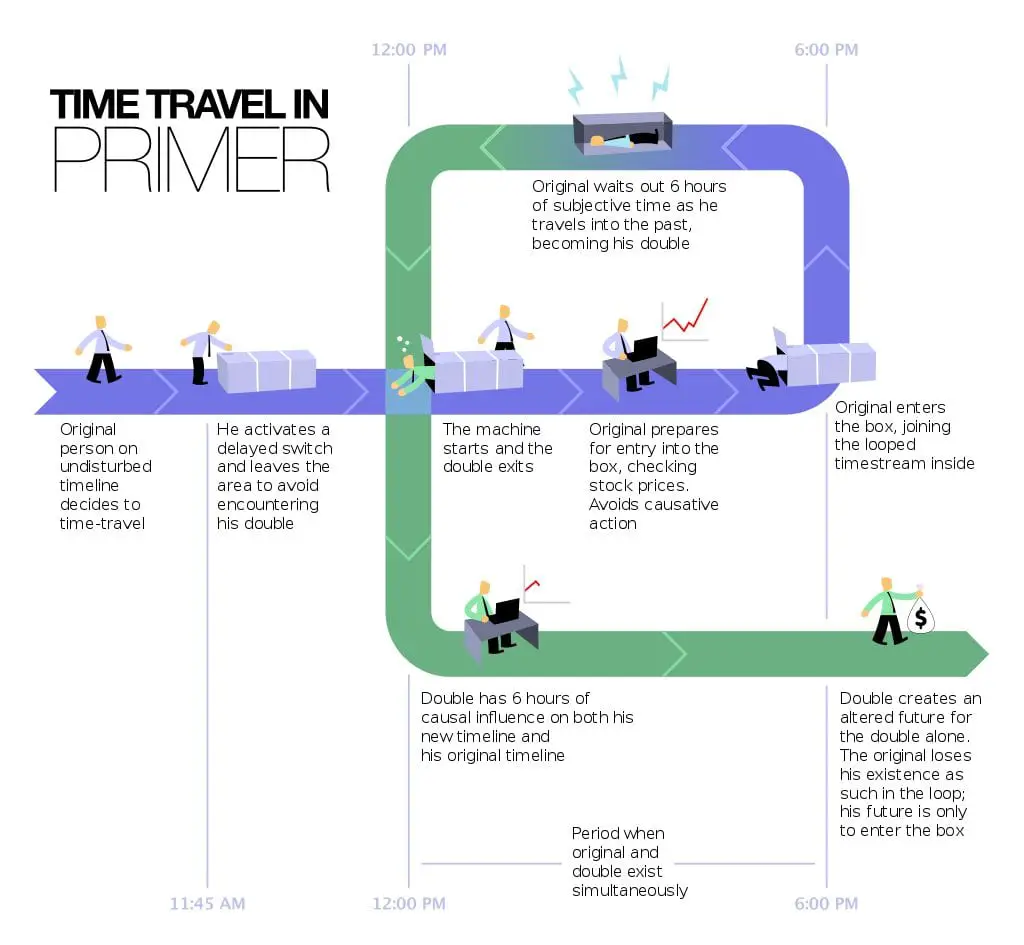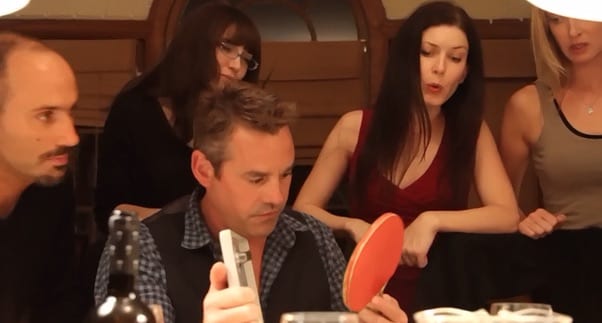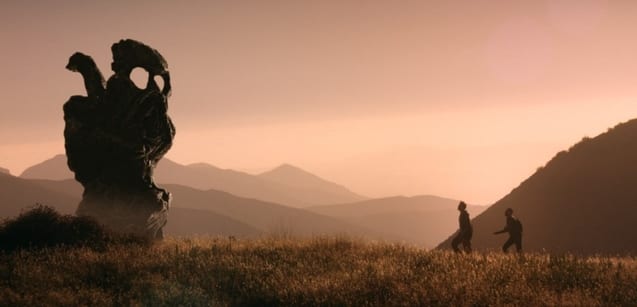Time travel, parallel universes, alternate realities, and downright questionable realities. These are things that have been tackled many times in movies—especially time travel—but how often do their creators manage to pull off the trick of avoiding oversimplification whilst also keeping us entertained, and, thoroughly confused? It’s a delicate balance. Everyone (who isn’t afraid of a little cerebral dissonance) loves a good movie that can mess with your head, and here are a few of my favourites. All of these will leave you with a vague sense of confusion, unease, and a desire to watch again; just to see if it makes more sense the second time.
Primer
“I’m starving, I haven’t eaten since later this afternoon…”
Released in 2004, Primer was written, directed, and edited by Shane Carruth. He also composed the score and starred in the film. This level of control could possibly be explained by the minuscule $7000 budget but then Carruth went and did the same again with his next film Upstream Color, although the $50,000 budget for that one was still on a par with the average catering budget for a normal movie.
The film starts off slowly and simply. Four engineer colleagues are trying to come up with money-making projects in Aaron’s (Shane Carruth) garage in their spare time. There is a disagreement about direction, and Aaron and Abe start to work on their own thing. They inadvertently invent a time machine but, worried about paradoxes, they strive to avoid triggering them whilst trying to use time travel to make money on the markets. At least, this is how it seems at first. As the film progresses the layers and complexities begin to make it difficult to keep track of what is going on and who is who, and when is when. Everything really starts to unravel as the two protagonists begin to work at cross purposes, against each other and against different versions of themselves. Soon you have no idea how many protagonists there are and begin to understand that you don’t even know who the original timeline protagonists were.
Carruth deliberately doesn’t try to make this film easy on you. The dialogue is spare, and not dumbed down in any way. Clues aren’t fed to you, and if you do start to get a vague understanding of the convoluted time threads as the film progresses, it becomes apparent that you need to watch the film again because your entire understanding of how things progressed has changed. Carruth himself has a degree in mathematics and worked as an engineer. While writing the dialogue, he actually studied physics, so that the conversations would sound real. The man was nothing if not dedicated to making your mind do loops. Primer is essential watching for anyone that loves movies that mess with your head, and if after repeated viewings you’re still having trouble figuring it all out, help is at hand: there are numerous helpful guides to the movie on the internet. If you can follow the explanations of course…

Coherence
There’s something about films of the mindbending variety that lends itself to micro-budgets. Coherence is no different and if it didn’t draw you in quite so successfully it’s technical and budgetary shortcomings could potentially spoil things for you, but they really don’t. The lack of expensive equipment and lighting is compensated for—and in some ways used—by making the often-muffled sound and dim outside lighting add to the confused paranoid atmosphere of the piece as it progresses. Starting like any number of mumblecore indie films, a group of old friends have gathered for dinner, but it happens that a comet is passing close by and this kicks off a string of confusing parallel universe events that make this evening a little more unusual than most suburban middle-class dinner parties.
This was James Ward Byrkit’s directorial debut, having previously been a conceptual artist on the first three Pirates of the Caribbean movies and a writer on Rango, which makes Coherence even more of a pleasant surprise. The film manages perhaps to capture a level of believability due to the fact that Byrkit didn’t have a script and just gave the actors character briefs and daily notes, letting them loose with various plot cues. A lot of what is captured is improvisation, and the cast reportedly spent only a few days filming whereas Byrkit then went away and edited the results for a year.
What if we’re the dark version?
Where Coherence differs from Primer is that the characters aren’t highly intelligent scientists, they’re just your average well-educated middle-class folk and are figuring out the complexities of multiple realities and versions of themselves right along with the audience. They react with the fear, paranoia and selfishness that most people would when faced with uncertainty about who you are, who your friends are and which dimension you’re from. As such, Coherence seems a lot more approachable than Primer, but is not any less absorbing. Less confusing certainly. Byrkit crafts the film more like a puzzle box, laying out tokens such as the different-coloured glowsticks, the numbers, and the random objects the groups put in boxes with which you can try to keep track of the whole crazy mess.
Also, it has Xander from Buffy (Nicholas Brendon) in it. Enough said.
The Endless (and Resolution)
Justin Benson and Aaron Scott Moorhead’s film, 2012’s Resolution was a good film made on a $20,000 budget, but it’s semi-sequel The Endless surpasses it in every way, whilst retaining the same framing mythos and expanding on it. Resolution is definitely worth a watch first but is by no means essential. The Endless does have connections to the earlier film and loops into its reality at one point. They work well as companion movies, and you could have worse evenings than curling up to watch them back-to-back. In some ways, you could say Resolution is more mindbending because it doesn’t give much away and keeps you guessing, even at the end, as to what exactly is going on. The Endless though has a majestic sweep to its narrative, opening up the mythos and explaining more, but with that throwing out a whole host more questions.
The mindbending nature of The Endless is not so much in the generalities of what is happening. Clues are dropped from the beginning that something very odd is happening time-wise: the old newspaper that the videotape is packed in, the condition of the roadside memorial to their mother and most obviously, the seemingly ageless nature of everyone at the compound. The nature of the time loops is teased out with expert precision; nothing is given away too quickly or over-explained, and sometimes emerging from the overall gentle pace of the film in the early portion, the horror hits with a raw brute force like the desperate stare of the man trapped in a short loop forced to kill himself every five seconds.
Like shitty pods of time
So you won’t walk away from The Endless totally baffled and requiring a notebook as perhaps you would with Primer, but it draws you into its secrets slowly and has a foreboding sense of cosmic horror about it that stays with you after watching. It nonetheless leaves you pondering the frayed threads around the edges of the narrative, and questioning the fragility of reality. This is a rare film that effectively pulls off being an absorbing character-based drama whilst being a full-fledged supernatural mind-bender.
Synecdoche, New York
Synechdoche
: a figure of speech in which a word or phrase that refers to a part of something is substituted to stand in for the whole, or vice versa.
Perhaps of all Kaufman’s films, Synecdoche, New York is the most deliberately obscure and difficult to parse. It’s also a film that tends to provoke strong opinions, with some critics considering it an indulgent mess and others a piece of genius. Any film that has a reaction like that is something I am definitely going to see.
Synecdoche (pronounced suh·nek·duh·kee), New York is set in Schenectedy, New York, which only makes sense if you know how to pronounce synecdoche. The film follows theatre director Caden Cotard in his lifelong quest to produce a piece of art that mirrors real life in all it’s mundanity and, as his personal life crumbles, becomes increasingly involved in it with the lines blurring between his real life and his production.
Caden and everyone else in the film are vehicles to represent our own fears: getting ill, dying, loneliness, and an inability to achieve perfection. The pacing of the film and its coherence seems to mirror our passage through life as we age. Childhood seems slower, time passes with a languid pace where it seems like it will go on forever. As we get older, time seems to speed up, become more jumbled and makes less sense.
It would be easy perhaps to explain the events of the film as a dream, or imagination, and there are certainly clues in the film that could be used to put forth such a theory, but that for me would seem to detract from the complicated beauty of a film that seems to be trying to reflect back at us the confusing fragments and emotions of our existence, and the progress of our lives. The film itself is a synecdoche for humanity.
Triangle
At first glance, you may dismiss this film as some dumb flick about the Bermuda Triangle. I know I did, and I was dead wrong. This is in fact a seriously mindbending time-loop movie from the mind of the British writer and director Christopher Smith that is actually quite challenging to keep track of. Despite having a reasonable budget and distribution, as well as good reviews, Triangle kind of sank without fanfare, not even receiving a US theatrical release. It’s possible this is due to its marketing as a horror film, which it really isn’t, having more in common with the micro-budget cerebral headscratchers on this list than a straight-up horror release.
Often time-loop stories can get a bit tedious, and outright annoying, forcing you to watch the same scenes over and over again, but Triangle manages to avoid this, with a clever script and by keeping the plot moving whilst ensuring that you’re always slightly confused without totally losing the plot. As Jess (Melissa George) goes through each loop she (and we) learn a little more about what is happening and tries different things—largely killing everyone and herself in different ways it has to be said—to break herself out of the loop.
You just had a bad dream baby, bad dreams make you think you are seeing something that you aren’t.
The overarching conundrum (and fun) of Triangle, aside from figuring out the complex rules of the loop, is who the real Jess is outside the loop, and whether any of it is real, and if so, which parts. A second watch is really required to grasp the Sisyphean nuances at play, because you really need to pay attention to the first part of the film after watching the rest of the film and particularly the end. Knock yourself out and watch it on a loop for a few hours and see what you come up with.
Honorable Mentions: They Look Like People, Synchronicity, The One I Love.
There are many worthy contestants for the best mindbending film and possibly some I haven’t even seen yet, so feel free to add your own in the comments.







Predestination is pretty cool, too.
Primer and Coherence are two of my favorite movies and I am really glad they made the list. First time I saw Primer I had no clue what it wasn’t about and I figured I was watch a biopic or something when it started. Coherence completely blew my mind, I think it watched it twice in a row the first time, i think about that movie all the time, it is perfect.